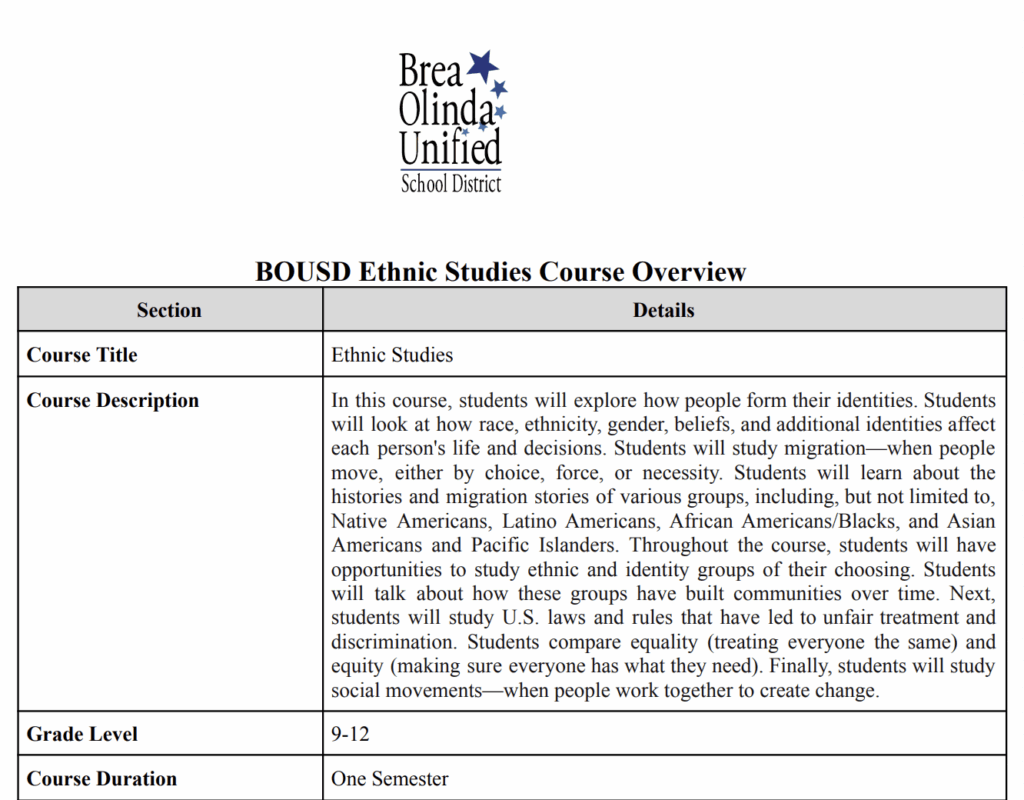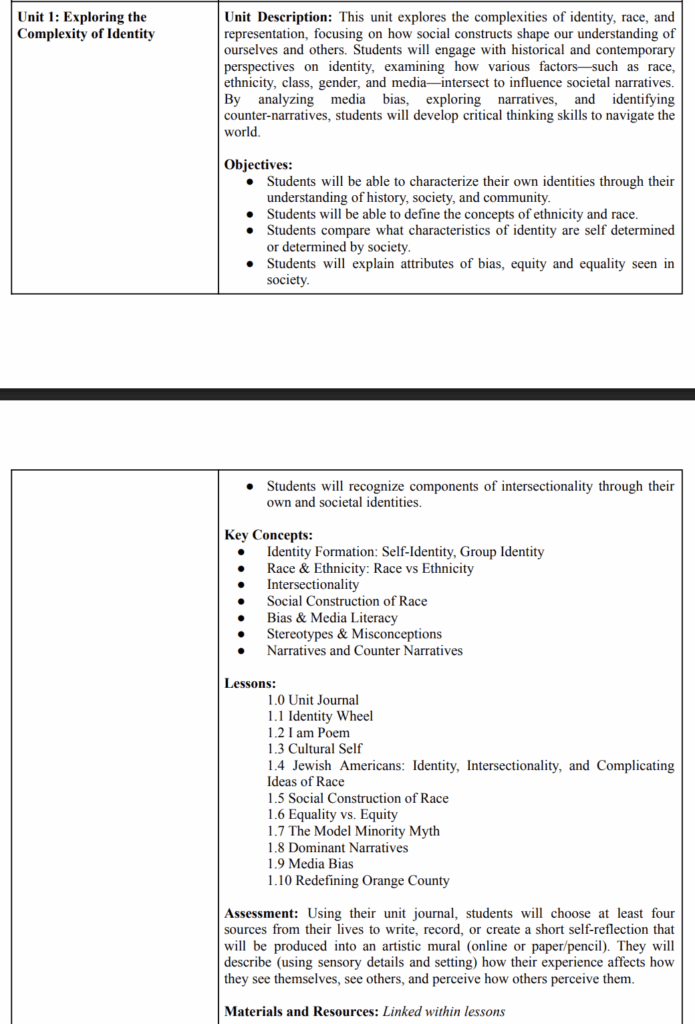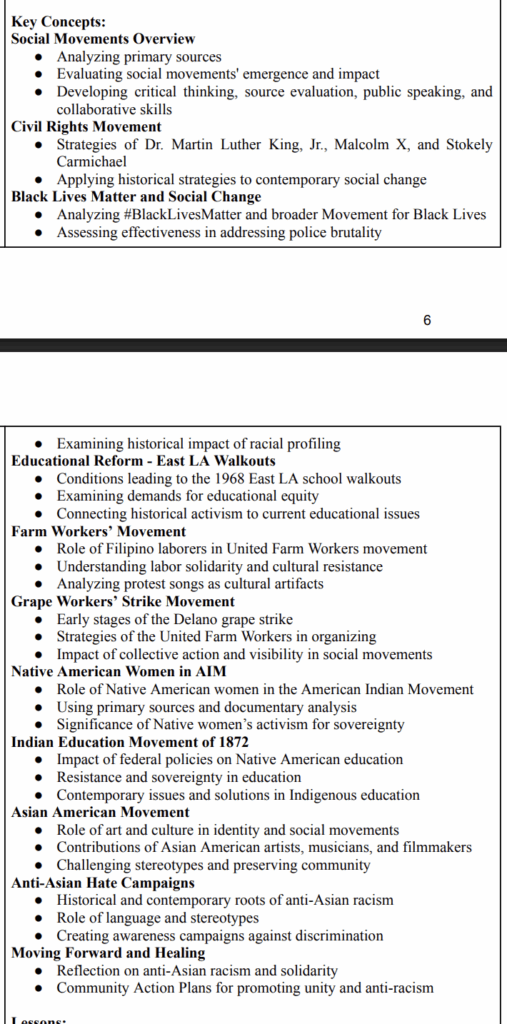
LiberatED: Brea Olinda Unified School District
Incidents
- Issues
- Ethnic Studies
The course overview for high school ethnic studies at the the Brea Olinda Unified School District (BOUSD), explains that students “will look at how race, ethnicity, gender, beliefs, and additional identities affect each person’s life and decisions.”
As part of the course, “Students compare equality (treating everyone the same) and equity (making sure everyone has what they need)” and study “social movements—when people work together to create change.”

Unit 1: “Exploring the Complexity of Identity” explores “historical and contemporary perspectives on identity, examining how various factors —such as race, ethnicity, class, gender, and media — intersect to influence societal narratives.”
Objectives include asking students “to compare what characteristics of identity are self determined or determined by society” and “recognize components of intersectionality through their own and societal identities.”
Lessons topics include the “Identity Wheel,” “Jewish Americans: Identity, Intersectionality and Complicating Ideas of Race” and “Equality vs. Equity.”

Unit 2: “Migration Histories” asks students to analyze “the historical and contemporary forces that have shaped voluntary and forced migration, including colonialism, slavery, genocide, and immigration.”
Unit 3: “Public Policies and Impacts” asks students to examine “laws, court cases, and government actions” and analyze “how communities have navigated broken treaties, segregation, displacement, and exclusion.”
Unit 4: “Social Movements” explores “the historical and contemporary movements of Native Americans, Latino American, African Americans/Blacks, and Asian Americans and Pacific Islanders communities in their pursuit of justice.”
Objectives ask students to “evaluate the structure and tactics of the Black Lives Matter movement and its effectiveness in confronting police brutality and systemic racism” and “develop a Community Action Plan that addresses anti-Asian racism and fosters healing, justice, and anti-racist strategies across communities.”
Key concepts ask students to apply “historical strategies to contemporary social change,” connect “historical activism to current educational issues,” evaluate “resistance and sovereignty in education” and create “Community Action Plans for promoting unity and anti-racism.”

Stay Informed
